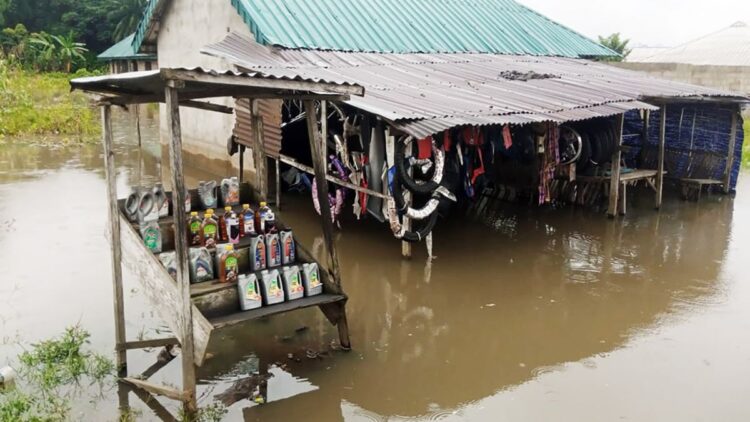“Unfortunately, over 603 lives have been lost as of today October 16, 2022,” said Humanitarian Affairs Minister Sadiya Umar Farouq.
The previous toll from last week stood at 500, but the numbers had risen in part because some state governments had not prepared for the floods, said the minister.
The flooding also completely destroyed more than 82,000 houses and nearly 110,000 hectares of farmland, said Umar Farouq.
The flooding is expected to continue until the end of November.
Nigeria is used to seasonal flooding, but this year has been significantly worse than usual.
The government has said unusually heavy rains and climate change are to blame.
The emergency release of excess water from dams both in Nigeria and in neighbouring Cameroon was another key factor causing devastating flooding.
Experts also say poor planning and infrastructure have exacerbated the damage.
While the rainy season usually begins around June, the rainfall had been particularly heavy since August, said the National Emergency Management Agency (NEMA).
In 2012, 363 people died and more than 2.1 million were displaced by flooding.
Sub-Saharan Africa is disproportionately affected by climate change and many of its economies are already struggling from ripple effects of the Russia-Ukraine war.
Rice producers have warned that the devastating floods could impact prices in the country of some 200 million people where rice imports are banned to stimulate local production.
The World Food Programme and the UN’s Food and Agriculture Organization said last month that Nigeria was among six countries facing a high risk of catastrophic levels of hunger.

